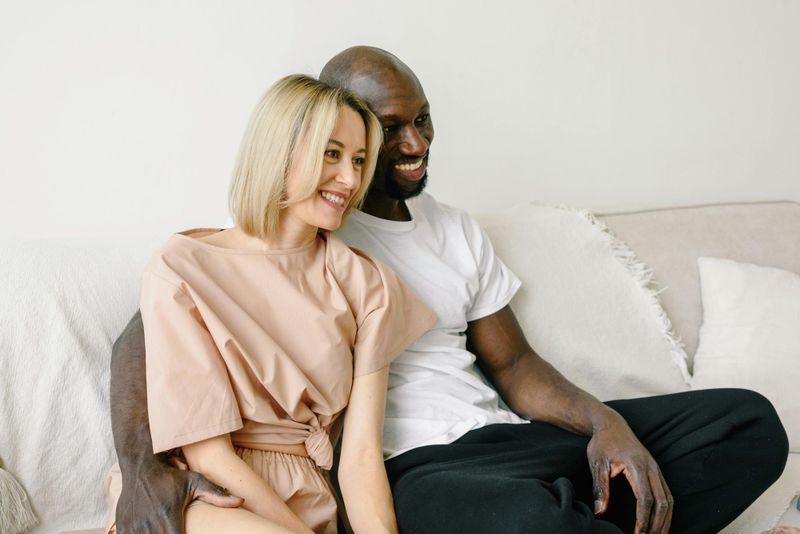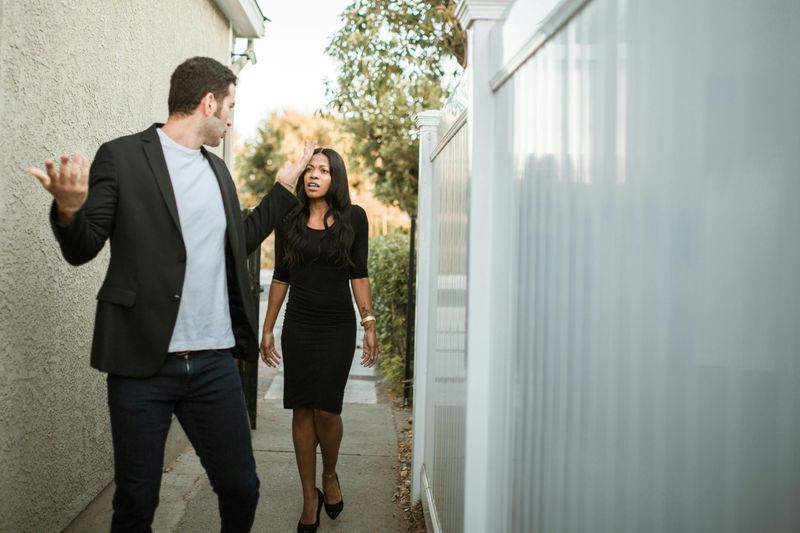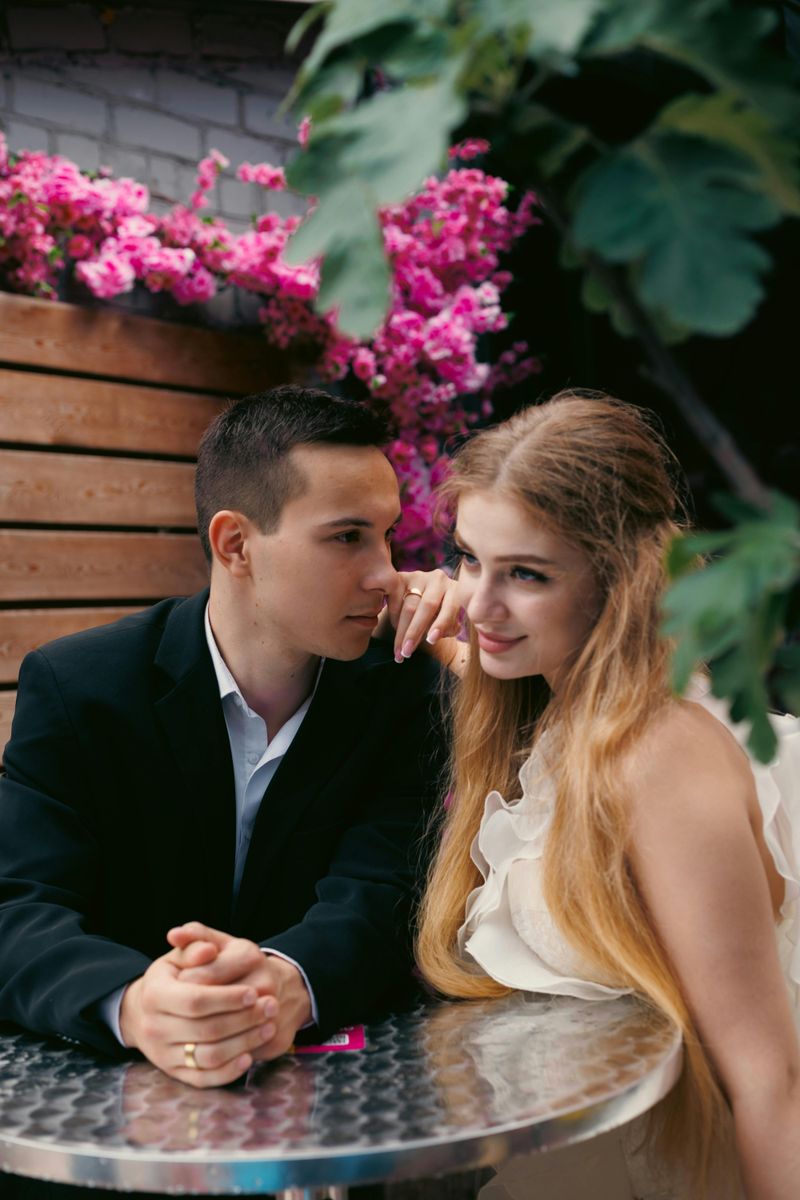15 Warning Signs That Scream “Run!”—But Somehow Still Get Romanticized
We’ve all seen those movie moments where possessive behavior gets painted as passionate love. Romance novels and films often glorify relationship behaviors that would be serious warning signs in real life. The problem? When fiction bleeds into reality, we might mistake control for care or drama for devotion. Let’s unpack these warning signs that should make us run—not swoon.
1. Needing to Be With You 24/7

Remember Edward watching Bella sleep in Twilight? Super creepy, yet somehow portrayed as romantic devotion. Constant presence isn’t a sign of love—it’s often about control and insecurity.
Partners who can’t bear being apart might text incessantly when you’re with friends or “surprise” you during girls’ night. While movies frame this as “can’t live without you” romance, healthy relationships require space and independence.
Your partner should complement your life, not consume it. If they make you feel guilty for having separate interests or friendships, they’re smothering your identity, not showing love.
2. Jealousy Framed as “Love”

Green-eyed monsters aren’t cute companions in relationships. When someone monitors your social media, questions your friendships, or creates scenes because someone smiled at you, that’s possessiveness masquerading as devotion.
Movies often show jealous partners as deeply in love, but real love includes trust. The partner who “can’t help being jealous” is actually saying they don’t trust you or respect your autonomy.
Healthy relationships feel secure, not like you’re constantly proving your loyalty. If you’re walking on eggshells to prevent jealous outbursts, that’s not passion—it’s a prison.
3. Love-Bombing Early On

Whirlwind romances seem magical in movies. In reality, someone declaring undying love after one week should raise eyebrows, not heart rates. Love-bombing feels amazing—you’re showered with attention, gifts, and future promises before you’ve even learned each other’s middle names.
This intense beginning often masks manipulation tactics. Once you’re emotionally hooked, the bomber has leverage to control the relationship.
Genuine connections develop gradually through shared experiences and seeing each other’s authentic selves. If it feels too perfect too fast, your fairy tale might be someone else’s strategy.
4. “I’m Nothing Without You” Statements

Rom-coms love the dramatic “you complete me” declarations. They sound romantic but reveal something troubling: emotional dependency. When someone’s entire happiness hinges on your relationship, they’re placing an impossible burden on your shoulders.
Healthy partners enhance each other’s lives but maintain separate identities. They support each other’s growth rather than using the relationship as an emotional crutch.
Someone who claims they can’t live without you isn’t expressing love—they’re revealing they haven’t developed their own sense of self. True love empowers both people, not creates emotional hostages.
5. Disrespect Disguised as Teasing

“Just kidding!” doesn’t erase the sting of cruel words. Many sitcoms normalize partners who constantly mock each other’s appearance, intelligence, or dreams—all played for laughs with a studio audience’s approval.
Real love builds you up, not tears you down. Partners who regularly “joke” about your flaws are often testing boundaries to see what criticism you’ll accept.
Pay attention to how their teasing makes you feel. If their humor leaves you feeling insecure rather than sharing genuine laughter, they’re using “jokes” as a shield for saying hurtful things they actually believe about you.
6. Explosive Fights Followed by Intense Makeups

Hollywood loves portraying couples who scream, throw things, then fall passionately into each other’s arms. This destructive cycle gets branded as “passionate love” when it’s actually emotional volatility.
The dramatic highs after intense lows create an addictive pattern. Your brain gets flooded with relief chemicals when the fighting stops, mistaking that relief for love.
Healthy disagreements involve calm discussion, not dramatic door-slamming or name-calling. If your relationship resembles a roller coaster more than a scenic drive, you’re experiencing drama addiction, not deep connection. Stability might seem boring after such intensity, but peace is actually precious.
7. “Fixing” Them Becomes Your Full-Time Job

Beauty tamed the Beast, right? Countless stories glorify partners who sacrifice everything to “save” troubled lovers. This “fixer-upper” relationship trope is dangerous—it teaches us that love means endless patience with bad behavior.
When someone’s healing becomes your responsibility, you’re not a partner—you’re an unpaid therapist. Real growth requires personal accountability, not a savior.
The harsh truth? People change when they’re ready, not when you love them enough. If their potential is always just around the corner but never arrives, you’re dating a fantasy of who they could be, not who they actually are.
8. They Call You “Crazy” for Having Feelings

Ever expressed legitimate concerns only to be labeled “dramatic” or “crazy”? This classic gaslighting technique makes you doubt your own perceptions. Popular culture often portrays emotional women as irrational while celebrating stoic, unresponsive men.
Healthy partners validate feelings even when they disagree with conclusions. They create space for emotional expression rather than shutting it down with dismissive labels.
Your emotions are valid data about your experience. Someone who consistently dismisses them is training you to ignore your internal warning system. Remember: feeling upset about being mistreated doesn’t make you crazy—it makes you human.
9. They’re Rude to Others, But Sweet to You

The classic romance novel “bad boy” is often charming to the protagonist but cruel to everyone else. This selective kindness isn’t mysterious —it’s a preview of coming attractions.
How someone treats service workers, family members, or exes reveals their true character. The rudeness you currently find amusing (“he just doesn’t take nonsense from anyone!”) will eventually be directed at you.
Kind people are consistently kind, not just when they want something. If you’re making excuses for their behavior toward others, you’re ignoring crucial information about who they really are beneath the charm they’re currently showing you.
10. They Say “I’m Just Honest” — But It’s Really Cruelty

“I’m just being honest” often translates to “I don’t care how my words impact you.” Brutal honesty without compassion isn’t courage—it’s emotional carelessness masquerading as authenticity.
Social media celebrates “savage” comments and brutal takedowns. But in relationships, communication should aim to connect, not wound.
Truly honest people can deliver truth with kindness. They consider timing, wording, and necessity before speaking. If someone regularly hurts your feelings then blames you for being hurt, they’re not committed to honesty—they’re avoiding responsibility for their communication choices.
11. Hot-and-Cold Behavior That Keeps You Guessing

The mysterious, unpredictable love interest is a romantic trope as old as time. One day they’re attentive and loving; the next, they’re distant and unreachable. Movies frame this as intriguing, but it’s actually emotional manipulation.
This inconsistency creates an addiction cycle. You chase the “high” of their good days while anxiously trying to fix whatever caused their withdrawal.
Reliable people show consistent behavior. Their affection doesn’t disappear without explanation. If you’re constantly analyzing texts for hidden meanings or wondering where you stand, you’re experiencing manipulation, not mystery. Real love feels secure, not like an unsolvable puzzle.
12. They “Don’t Believe in Labels” — But Still Act Like You’re Together

The commitment-phobe who wants relationship benefits without relationship responsibilities is practically a rom-com staple. They’ll introduce you to friends, text daily, and maybe even sleep over regularly—but panic at words like “boyfriend” or “girlfriend.”
This ambiguity serves them perfectly. Without clear status, they maintain power to disappear without technically betraying you.
Healthy relationships involve mutual agreements about expectations. If someone enjoys couple privileges while keeping one foot out the door, they’re prioritizing their options over your security. You deserve someone who’s proud to choose you, not someone treating you like a placeholder until something “better” comes along.
13. They Trash All Their Exes

When someone describes all their exes as “psycho,” “crazy,” or “toxic,” they’re waving a red flag with both hands. This pattern reveals an inability to take responsibility in relationships.
Everyone has relationship histories, but mature people acknowledge their contributions to past failures. They recognize lessons learned rather than simply villainizing former partners.
Someone who portrays themselves as the perpetual victim likely lacks self-awareness about their role in relationship dynamics. Worse, they’re showing exactly how they’ll speak about you someday. Remember: if they’ve dated nothing but “crazy” people, they’re the common denominator in all those situations.
14. They Guilt-Trip You Into Staying

“I’ll die without you” isn’t romantic—it’s emotional blackmail. Partners who threaten self-harm, remind you of all they’ve done for you, or claim you’re abandoning them when you set boundaries are manipulating your compassion.
Movies often frame this as evidence of deep love. Remember Rose and Jack’s “never let go” promise in Titanic? Real relationships should offer freedom, not obligation.
Healthy love respects autonomy. It recognizes that genuine connection can’t be forced or guilt-induced. If leaving feels impossible because you fear what they might do, you’re being held emotionally hostage, not loved unconditionally.
15. You’re Constantly Anxious, But Call It “Butterflies”

That fluttery feeling might not be romance—it could be your nervous system screaming. We often confuse anxiety with excitement, especially when media portrays relationship stress as passionate intensity.
Your body knows something’s wrong before your mind admits it. Constantly checking your phone, worrying about saying the “wrong thing,” or feeling relieved when plans cancel are anxiety symptoms, not love signs.
Healthy relationships bring peace, not constant nervous energy. They feel like coming home, not preparing for battle. If you’re exhausted from emotional hypervigilance but calling it “butterflies,” your body is sending warnings your heart isn’t ready to hear.


Comments
Loading…